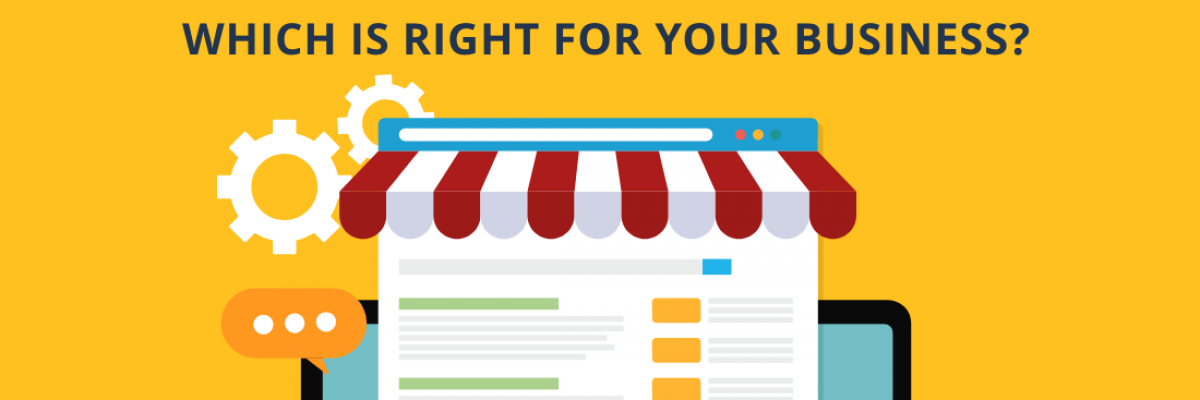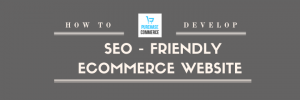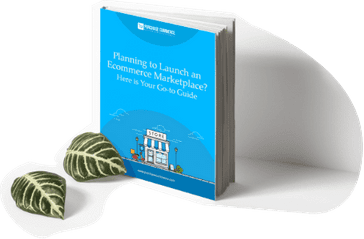Custom Ecommerce Platform vs SaaS Model: 16-Point Comparison
Want to set up your ecommerce business, but not sure from where to start? Are you confused with all of the ecommerce software available in the market today? Do not get in a fluster. There are mainly just two types of ecommerce websites: one is built on a subscription-based platform and the other is built on a fully owned ecommerce platform. Therefore, choosing the right one among these two depends on your business requirement.
But how to decide which is best for your business. The comparison below can help you choose the perfect ecommerce platform to start selling online. So, let’s take a sneak peek into both the Saas and custom ecommerce solution and dive into their benefits and limitations to figure out the right choice for your business.
SaaS (Software as a Service)
Saas is a software distribution model where you can easily own a platform with a low initial cost and then pay a reasonable monthly fee to continue the service. The platform model gives the ability to update the software on the fly. This licensing model provides a low-cost option for you to have real-time access to the ecommerce platform whenever there’s an internet connection. However, this model has its limitation if your business grows in its size and once you start earning, a fixed percentage of your turnover is charged forever by the software provider.
Custom ecommerce platform
If you have any specific requirements, the custom ecommerce platform is a good option for you. Here, with the help of developers, you can integrate extra functionalities to an already existing ecommerce platform for added benefits. This kind of flexibility allows you to have full control over your online store. You purchase a domain name, get hosting, upload the code and get your website up and running. Also, if required, you can opt for the online store builders’ periodic maintenance plan to run your ecommerce site continuously and smoothly without any interruption.
16-Point Ecommerce Platforms Comparison
SaaS ecommerce platform
-
SaaS model doesn’t require any installation. So, it is easy to learn and understand and you can set up your online store with just a few steps.
-
You can start selling immediately with the Saas platform.
-
Most of the Saas models are just restricted to inventory-based Single Vendor business model.
-
Saas model allows you to get a shared hosting on the software providers’ own server which might slow up things during peak demand.
-
Only subscription-based costing with a limited range of business plans is available for you to select from.
-
You can subscribe for a limited trial pack with minimal features and then go with the full subscription plan.
-
Only paid & limited choices are available for you to choose the themes and templates.
-
All the payment, shipment and communication methods are limited to the functionalities integrated by the software provider.
-
You are provided with limited options to build an SEO-friendly ecommerce site.
-
You can add only a limited number of products to sell online. Product and category limits are applied based on the subscription plan chosen by you.
-
Your website comes under the software provider’s brand.
-
Your online store’s build slows down due to shared servers.
-
The initial cost seems cheaper but eventually, subscription cost accumulates. So, it is not worth considering in the long run.
-
Store owners often migrate from Saas to other platforms due to limited plugins, integrations and customizations.
-
As your revenue grows, the per-transaction charge is a bit too high which includes the software provider charge and payment gateway charges.
-
It is mainly applicable to startups and small businesses.
Custom ecommerce solution
-
You need at least a minimal knowledge to get your online store up and running as it requires you to purchase a domain name, get hosting and upload the code on the server. For this, expert online store builders like Purchase Commerce can help you with the setup process.
-
You require a turnaround time of around 2 days to start selling the product once you decide to go with the custom solution.
-
You can create a multi-vendor marketplace along with drop shipping integration.
-
You can choose the hosting plans based on your unique business requirements.
-
You can completely own your online store by opting for a one-time payment with lifetime license subscription. If you need to have any additional customization, extra charges will be applied based on your needs.
-
You can use the demo version for testing purpose and then use the customized full version once you are done with the one-time payment.
-
You are provided with fully customizable themes & templates for your ecommerce platform.
-
A wide range of third-party API integrations can be added for payment, shipment and communication gateways.
-
You are provided with many options to make your ecommerce site more SEO friendly.
-
You can add unlimited products or items to your store.
-
With white labelling option, own branding is possible as per your wish.
-
Since you manage the server hosting, you can make your ecommerce website to work at lightning speed.
-
Can be good for any business in the long term as the custom solution offers more flexibility.
-
Migration not required due to highly flexible customizability.
-
Only charges are collected by the integrated payment gateway.
-
A custom ecommerce website can suit any kind of businesses from start-ups to large scale enterprises.
Next-gen custom ecommerce solution
Already many big ecommerce players have carved out the niche in their respective markets. So, if you set your goal to stand out from the crowd, you will need solutions that evolve with the needs of the booming ecommerce industry.
Catering to the evolving needs, the online store builder, Purchase Commerce provides a next-gen ecommerce solution that is built on top of the cutting-edge web technologies - Angular & Node. This advanced capability makes the platform elastically scalable. This elasticity feature enables the platform to adapt both the "workload increase" as well as "workload decrease" by "provisioning and deprovisioning" resources in an autonomic manner.
Purchase Commerce helps you to establish your online store easily with a custom domain name and custom theme that reflect your brand identity. It covers the full spectrum of your ecommerce needs ranging from strategy, design, development, optimization, all the way to wherever your ecommerce initiatives reach.
The following are the benefits of choosing the next-gen custom ecommerce solution from Purchase Commerce.
-
Building the web application process with Angular and NodeJS makes the website lightweight, scalable and more efficient in terms of performance.
-
Working with Angular and NodeJS enables the web development team to release new functionalities in a short period of time.
-
With the help of Angular and NodeJS, even a development team that is smaller in size can build large-scale enterprise-level applications, thus, reducing development cost.
-
Using NodeJS can help you to reduce server costs because it can handle more requests in a single OS thread. For instance, with NodeJS you could handle 200,000 concurrent users on a single server, while a PHP server might be able to handle only 4,000–10,000 users.








